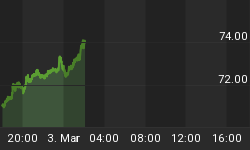Toyota is testing a solar-powered Prius that may some day not need to be plugged in to recharge, Reuters reports, adding that the car’s range on a single charge could reach up to 56 km or 35 miles.
The test car is equipped with super thin solar panels, designed by Sharp, which are usually deployed on satellites. On the Prius, the panels cover the hood, the roof, the rear window, and the spoiler to make sure the vehicle absorbs as much sunlight as possible.
The tests so far have been optimistic for sunny weather, but the designers admit the efficiency of the direct charging process drops substantially in cloudy weather and when the sunlight is too strong. High temperatures are known to compromise the efficiency of solar panels in utility-scale installations as well.
In addition to the weather challenge, the solar Prius is also heavier than comparable models: its battery pack weighs about 80 kg. Also, the solar panels need a buffer between them and the car’s body, which makes the whole layer, including the 0.03-mm panels themselves, about a centimeter thick. All this has made the car prohibitively expensive for the time being.
Two months ago, when Toyota first announced the tests, the company said the Sharp panels have a conversion efficiency rate of 34 percent and can produce some 860 W of electricity. This, Toyota said at the time, was almost five times more than the Prius PHV model, whose solar battery can generate about 180 W, with an efficiency rate of 22.5 percent.
With the project, the Japanese carmaker and its partners aim to solve one of the biggest problems for electric cars: range limitations. However, it looks like the solution will require a lot more time given all the constraints and challenges encountered by the people working on the solar Prius.
By Irina Slav for Oilprice.com
More Top Reads From Safehaven.com:

















